You are sure that this Thanksgiving is shaping up to be the best yet—you’ve made your grocery list and checked it twice, made space in your refrigerator for all those leftovers, and managed to keep the family from fighting long enough to RSVP. But, have you factored your pet into what’s sure to be a winner-winner of a holiday dinner?
Don’t worry. The Livingston Veterinary Hospital team is sharing the secret ingredient to a successful pet-friendly Thanksgiving. Here is our five-step recipe for the best Thanksgiving yet.
Step 1: Keep your pet out of the kitchen
As much as we love to include our pets in family activities, the holiday kitchen is no place for four-legged friends. Dogs and cats are opportunistic and will steal harmful foods and toxic ingredients from the counter every chance they get, be underfoot and get burned or otherwise injured by spilled food or liquid, or knock over the trash and help themselves to dangerous food wrappers, kitchen twine, grease, or meaty bones.
The best way to ensure your pet’s Thanksgiving is safe and happy is confinement in a crate or behind a barrier (e.g., pet gate) until kitchen preparations and cleanup are complete.
Step 2: Know what foods you can and cannot share with your pet
Accidental pet poisonings and food-related emergencies occur frequently during the holidays, because pet owners don’t realize that many everyday foods are toxic or harmful to dogs and cats who, when unsupervised, will steal from counters, tabletops, or the trash can.
Pets should never consume toxic or harmful foods in any quantity. Foods include:
- Turkey skin, fat, grease, or pan drippings
- Dishes or side items (e.g., gravy) made with onions, garlic, or leeks
- Chocolate in any form
- Raisins or grapes
- Items made with xylitol (e.g., sugar-free desserts)
- Alcohol or caffeine
- Nuts
- Yeast dough
- Corn on the cob
- Turkey or ham bones
These foods are either toxic, too rich, or a potential injury hazard for pets. Rich or fatty foods can cause dangerous pancreatitis, while corn cobs and meat bones pose a choking hazard and can become a life-threatening blockage in your pet’s gastrointestinal (GI) tract.
Some Thanksgiving ingredients can be shared with pets in limited quantities, so long as they are served plain (i.e., unseasoned, without sauce). Pet-safe foods include:
- White skinless turkey
- Sweet potatoes
- Carrots
- Apples
- Green beans and peas
- Pure pumpkin (i.e., not pumpkin pie filling)
- Cranberries
- Butternut squash
- Spinach
Step 3: Exercise your pet early and designate a resting place
Whether you are in your home or a guest, physical activity can ease your pet’s stress and nervous excitement, improve their behavior, and help ensure they rest while you enjoy the holiday meal. Take your dog for a nice long walk or play with your cat several hours before dinner is scheduled. If your pet is nervous around unfamiliar people, overwhelmed by busy environments, or likely to forget their manners when the turkey appears, provide them with a safe, secure, and quiet place (e.g., a spare room or a covered crate furnished with comfy bedding, a favorite toy, and any other necessities) to stay while everyone is eating.
You may not like being apart from your pet, but you can relax and enjoy the meal, knowing your pet is tired but content, confined but safe, and will not create holiday chaos.
Step 4: Ensure all guests understand the house pet rules
Ensure guests and all other attendees are aware of your pet’s presence and give them special instructions that will protect them and your pet, such as:
- Keep doors and gates closed
- Place belongings, especially bags containing medications, gum, candy, and small choking hazards, on wall hooks, shelves, or counters
- Keep guest room doors closed
- Respect the dog or cat’s space and leave them alone when sleeping, eating, or playing with a toy
- Do not feed the pet table scraps
- Allow the pet to initiate social interactions (i.e., do not grab, chase, or tease the pet)
- Supervise children around the pet
Step 5: Supervise your pet around holiday decorations
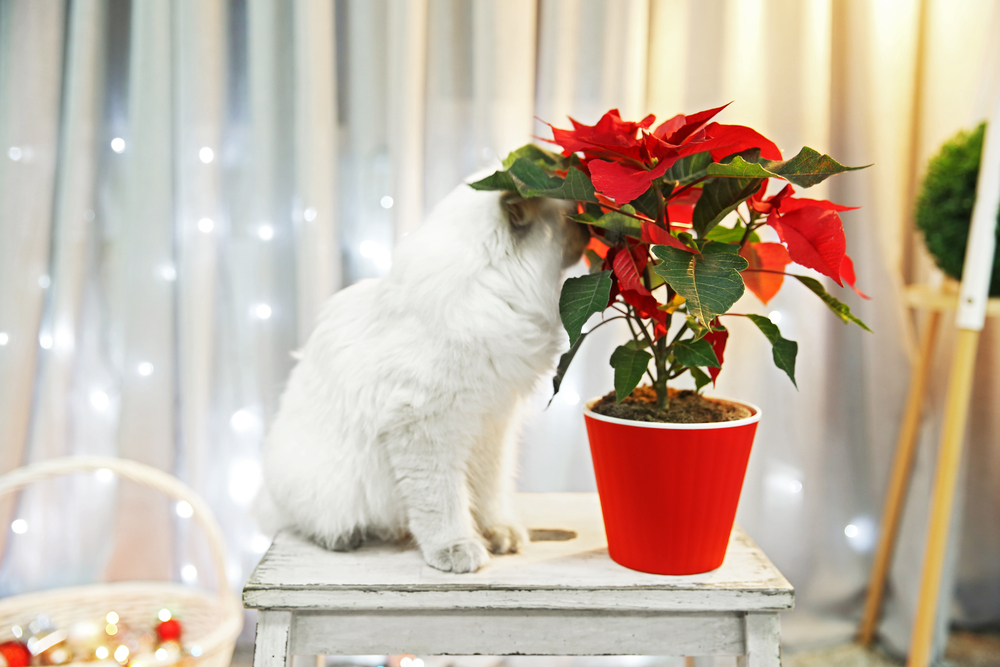
Pets may not appreciate holiday decor in the traditional sense, but they will show their admiration by playing with, chewing on, or consuming festive items. Unfortunately, this can lead to serious injury or illness and an unexpected trip to Livingston Veterinary Hospital or the nearest veterinary emergency center for treatment, hospitalization, or surgery.
Popular holiday items hazardous to pets include:
- Candles
- String lights
- Glass ornaments
- Toxic plants and flowers — Autumn crocus, azalea, chrysanthemums, cyclamen, and lilies are the most toxic to pets.
- Essential oils — Many essential oils are toxic to cats. Some can lead to liver failure, while others irritate the respiratory tract.
- Liquid potpourri — Simmering liquid potpourri can burn your pet’s paws or face. Many liquid potpourris are also made with essential oils.
Thanksgiving memories with your pet should leave you with warm fuzzy feelings, not a sense of guilt or regret. Fortunately, all that separates you and your four-legged friend from a winner’s dinner is our easy-to-follow recipe.
If your pet needs a little something extra to feel their holiday best—such as anti-anxiety medication, stress-reducing supplements, or a fresh bag of their favorite prescription diet—contact the Livingston Veterinary Hospital team. Our offices will be closed for the Thanksgiving holiday, so don’t wait to request or pick up your pet’s refills!
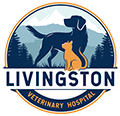

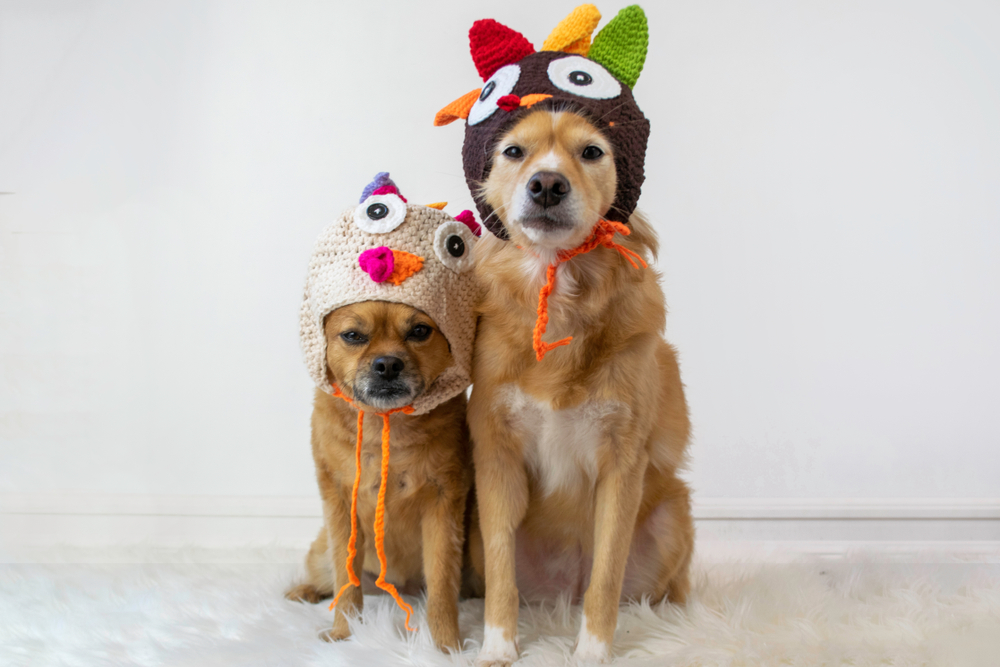


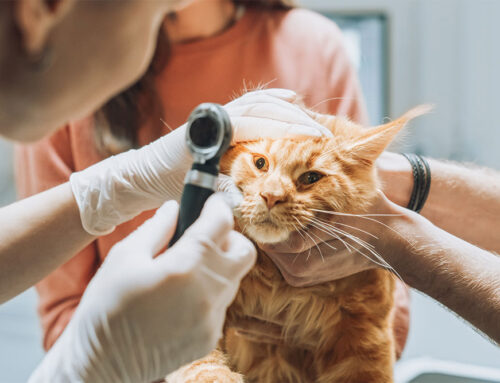
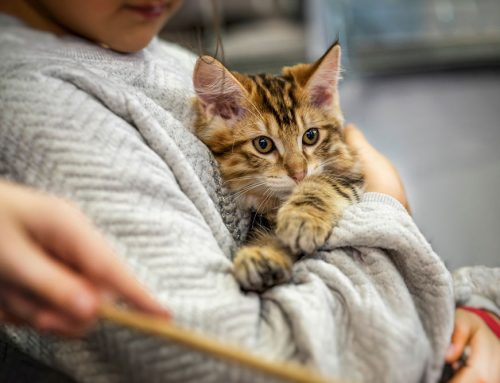
Leave A Comment